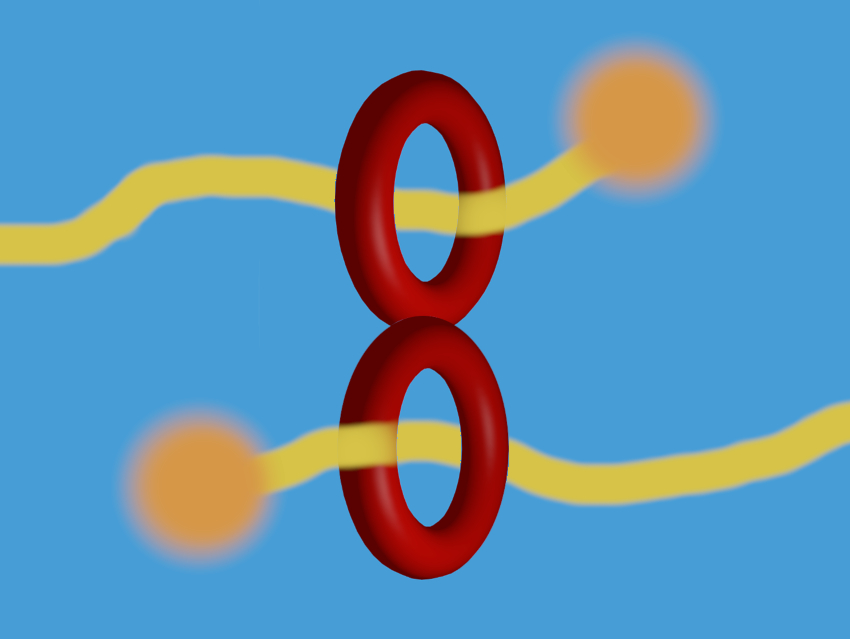Hydrogels are water-rich soft materials. For many applications, they need to be reinforced to withstand mechanical stress. For example, additional crosslinking or the integration of nanoparticles or crystalline structures can be used to make hydrogels tougher. However, while these structures can dissipate the energy from mechanical stress, they do not recover quickly afterward. This means the toughness of the hydrogel drops when it is subjected to repetitive mechanical stress.
Koichi Mayumi, The University of Tokyo, Japan, and National Institute of Advanced Industrial Science and Technology (AIST), Kashiwa, Japan, Kohzo Ito, The University of Tokyo, and colleagues have developed hydrogels that rapidly recover from mechanical stress. The concept is based on reversible strain-induced crystallization. The team used polyethylene glycol (PEG) chains crosslinked with hydroxypropyl-α-cyclodextrin (CD)-based sliding rings (pictured schematically). The CDs are covalently connected by divinyl sulfone.
The crosslinking rings can slide along the PEG chains to release stress in the network. When the hydrogel is stretched, the rings slide along the chains towards each other. At the same time, the chains align, forming a more rigid, ordered structure—a strain-induced crystallization. When the strain is released, the material reverts to a more flexible gel state. According to the researchers, this “self-reinforcement” concept could also be applicable to gels composed of other semicrystalline polymers.
- Tough hydrogels with rapid self-reinforcement,
Chang Liu, Naoya Morimoto, Lan Jiang, Sohei Kawahara, Takako Noritomi, Hideaki Yokoyama, Koichi Mayumi, Kohzo Ito,
Science 2021.
https://doi.org/10.1126/science.aaz6694



![Synthesis of [c2]Daisy Chains via Mechanochemistry](https://www.chemistryviews.org/wp-content/uploads/2025/04/202504_RotaxanesWithSolidStateMechanochemistry-125x94.png)
